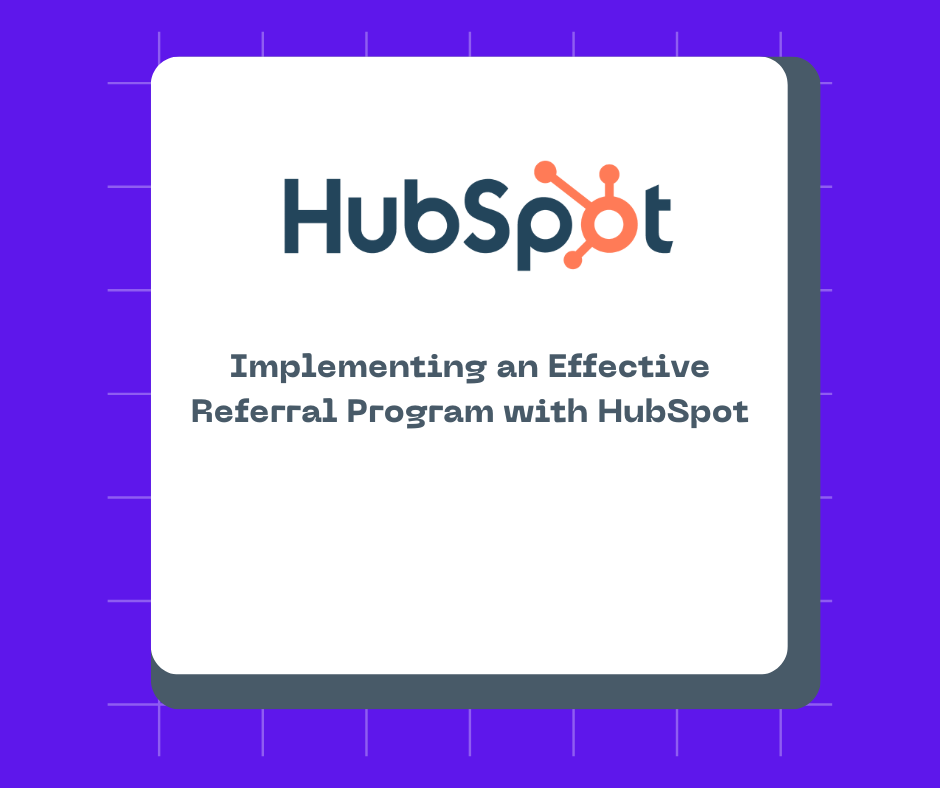In the ever-evolving landscape of marketing, one strategy that consistently stands out for its effectiveness is referral marketing. Leveraging the power of satisfied customers to drive new business is not only cost-effective but also highly impactful. With the right tools and platform, like HubSpot, implementing an effective referral program becomes streamlined and scalable. In this article, we'll delve into the world of referral marketing and explore how businesses can leverage HubSpot to create and manage a successful referral program.
Understanding Referral Marketing
Referral marketing is a strategy that involves encouraging and incentivizing existing customers to refer new customers to a business. This form of marketing capitalizes on the trust and credibility established between the referrer and their network, leading to higher conversion rates and increased customer loyalty. By rewarding customers for successful referrals, businesses can tap into a valuable source of leads and drive growth organically.
The Power of Referral Programs
Referral programs are structured systems that incentivize customers to refer others to a business in exchange for rewards or incentives. These programs can take various forms, such as discounts, credits, or exclusive perks, and are designed to motivate customers to spread the word about the business to their friends, family, and colleagues. When executed effectively, referral programs can generate a steady stream of high-quality leads and drive significant business growth.
Leveraging HubSpot for Referral Marketing
HubSpot offers a suite of tools and features that can streamline the process of implementing and managing a referral program. From tracking referrals to automating rewards and incentives, HubSpot provides businesses with the necessary infrastructure to launch and scale their referral initiatives effectively. Here's how businesses can leverage HubSpot for referral marketing:
1. Identify Your Advocates
The first step in implementing a referral program is to identify your most loyal and satisfied customers who are likely to become advocates for your brand. HubSpot's CRM allows businesses to segment their customer base based on factors such as purchase history, engagement level, and satisfaction scores, making it easy to identify potential advocates.
2. Create Compelling Incentives
Once you've identified your advocates, it's essential to create compelling incentives that motivate them to refer others to your business. HubSpot's marketing automation tools allow businesses to create personalized offers and rewards tailored to each advocate's preferences and interests, increasing the likelihood of participation in the referral program.
3. Simplify the Referral Process
To encourage participation in the referral program, businesses should make the referral process as simple and seamless as possible for advocates. HubSpot's CRM and marketing automation tools enable businesses to automate the referral process, providing advocates with personalized referral links and tracking their progress in real-time.
4. Track and Measure Results
Tracking and measuring the success of the referral program is essential for optimizing performance and identifying areas for improvement. HubSpot's analytics and reporting tools allow businesses to track key metrics such as the number of referrals, conversion rates, and ROI, providing valuable insights into the effectiveness of the referral program.
5. Nurture Relationships
In addition to rewarding advocates for successful referrals, it's essential to nurture the relationship and provide ongoing support and engagement. HubSpot's CRM and marketing automation tools enable businesses to automate personalized follow-up communications, such as thank-you emails and exclusive offers, to keep advocates engaged and motivated to refer again in the future.
Best Practices for Implementing a Referral Program with HubSpot
To maximize the effectiveness of your referral program with HubSpot, consider the following best practices:
- Align with Your Brand: Ensure that your referral program aligns with your brand values and messaging to maintain consistency and credibility.
- Promote Across Channels: Promote your referral program across multiple channels, including email, social media, and your website, to reach a wider audience of potential advocates.
- Provide Value: Offer valuable incentives and rewards that resonate with your advocates and provide genuine value for their participation in the referral program.
- Monitor and Optimize: Continuously monitor the performance of your referral program and make data-driven adjustments to optimize results and maximize ROI.
- Encourage Engagement: Foster a sense of community and engagement among advocates by providing opportunities for feedback, recognition, and interaction with your brand.
Conclusion
Referral marketing offers businesses a powerful and cost-effective way to drive customer acquisition and growth. By leveraging HubSpot's suite of tools and features, businesses can create and manage an effective referral program that incentivizes advocates to spread the word about their brand and drive new business. From identifying advocates to tracking referrals and rewarding participation, HubSpot provides businesses with the infrastructure and support they need to succeed with referral marketing. Embrace the power of referral marketing with HubSpot and unlock new opportunities for growth and success.
Schedule your training session here and comment “Need Training” on the request form.

Comments